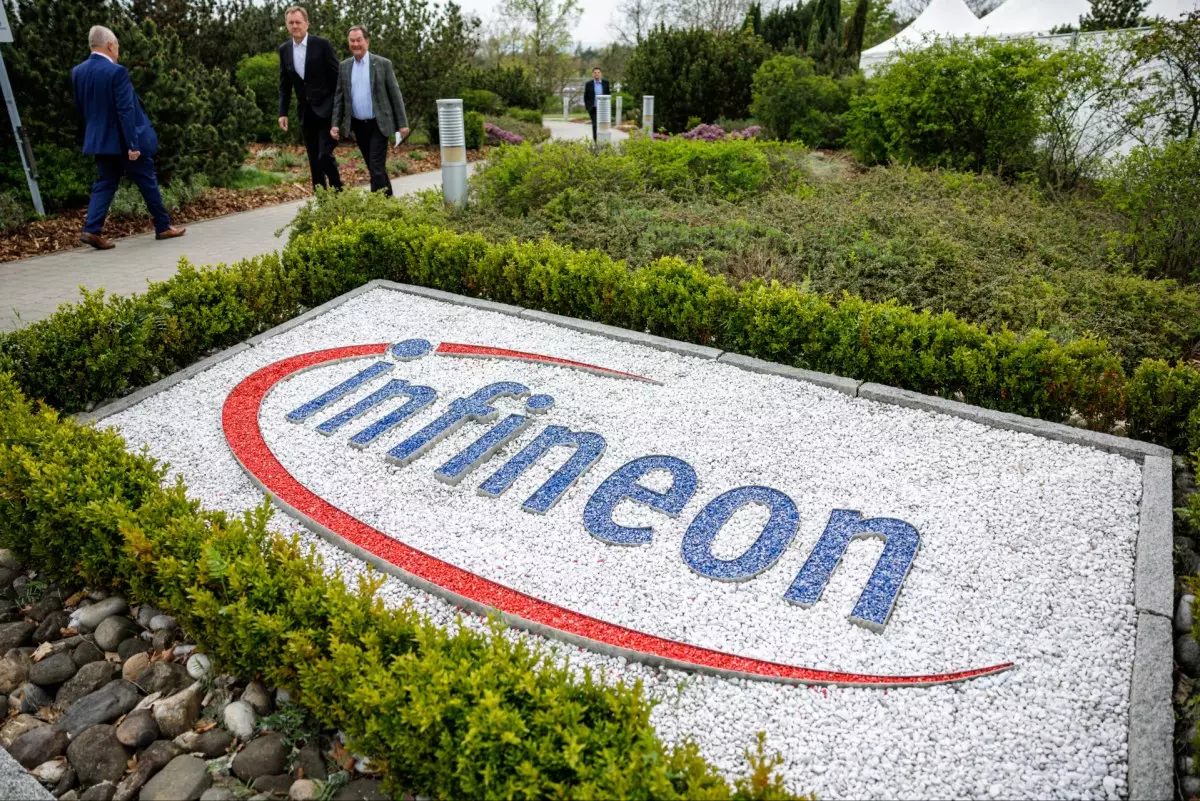India is at a pivotal juncture in its quest for sustainable development. The nation, with a staggering population of over 1.4 billion, is on the brink of a transformative leap towards electric mobility and renewable energy. With ambitious goals to elevate electric vehicle (EV) penetration from a mere 7-8% to an impressive 30%, and to quintuple its non-fossil energy generation from 100GW to 500GW by 2030, the stakes are high. Yet, these targets can only be achieved by establishing a resilient domestic ecosystem for electric vehicles and battery storage solutions that can compete cost-effectively with fossil fuel options.
To successfully navigate this challenging landscape, India needs to fortify its semiconductor manufacturing capabilities. The semiconductor industry, critical for the production of EVs and renewable energy technologies, serves as the linchpin for advancements. In this context, the recent partnership between Infineon Technologies, a leading German semiconductor manufacturer, and CDIL Semiconductors, a veteran Indian chipmaker, presents an opportunity to bolster India’s nascent semiconductor sector while simultaneously supporting the country’s green transition.
A Strategic Collaboration for Local Manufacturing
Infineon’s collaboration with CDIL marks a significant milestone; it is the first manufacturing partnership for Infineon in India, highlighting the growing interest in the potential of the Indian market. This partnership is centered around supplying wafers from Infineon’s facilities to CDIL, which will take on the packaging and assembly responsibilities at its complex in Mohali, Punjab. The immediate focus of this collaboration is on the production of MOSFETs (metal-oxide-semiconductor field-effect transistors), essential components that act as electronic switches for controlling electricity in a multitude of devices—including the increasingly popular electric cars.
Looking ahead, CDIL plans to diversify its production capabilities by incorporating Insulated-Gate Bipolar Transistors (IGBTs) into their offerings, which are critical for regulating high-voltage applications in EVs and renewable energy systems. This production flexibility and foresight are essential for the evolving landscape where the demand for efficient power semiconductors is set to surge as India transitions to more sustainable energy practices.
The Technological Edge: Silicon Carbide and Beyond
A noteworthy aspect of this partnership is the strategic choice of materials for semiconductor production. In alignment with global trends towards enhanced performance and energy efficiency, the semiconductors produced will utilize advanced materials like silicon carbide and gallium nitride. These materials are known for their superior heat resistance and higher power density, enabling devices to be smaller and more efficient—a critical consideration in automotive and renewable energy applications.
CDIL has been diligently developing its expertise in silicon carbide over the last four years, even exporting this innovative material internationally. This experience underlines CDIL’s potential as a key player in the domestic semiconductor market, especially when coupled with Infineon’s technological prowess and years of industry experience.
The Future of Semiconductor Manufacturing in India
Despite the promising direction of this partnership, it’s essential to recognize that establishing a robust semiconductor ecosystem in India is an uphill battle. While Infineon and CDIL are taking decisive steps in collaboration, widespread semiconductor manufacturing requires consistent policies, skilled talent, and significant investments in infrastructure. The Indian government has announced ambitious plans to establish India as a global semiconductor hub, pledging billions to promote the industry. However, questions remain regarding implementation and the speed at which this vision can be brought to fruition.
Infineon’s strategy points to the significance of local partnerships, as Richard Kuncic, senior vice president at Infineon, emphasized their careful, considered approach to entering the market—one step at a time rather than a scattershot approach. This reflective strategy illustrates a mature understanding of the complexities involved in expanding within a demanding field like semiconductor manufacturing.
The Economic and Environmental Implications
The economic implications of this collaboration are potent. By facilitating local manufacturing of critical semiconductor components, the partnership is expected to lower production costs for Indian manufacturers, ultimately making electric mobility and renewable energy solutions more accessible to consumers. This could drive higher adoption rates of EVs and further accelerate the transition to non-fossil energy sources.
Moreover, by emphasizing domestic production and reducing reliance on imports, this initiative also aims to contribute significantly to reducing India’s trade deficit in high-tech goods. Such measures are crucial for India to not only meet its ambitious targets but to position itself as a leader in the global green technology revolution.
In essence, the alliance between Infineon Technologies and CDIL Semiconductors reflects a convergence of ambition, technology, and sustainability that could redefine the trajectory of India’s energy and automotive industries. With the right structures in place, this partnership has the potential to catalyze a remarkable transformation in India’s technological landscape, steering the nation toward a future imbued with green innovation and economic resilience.

